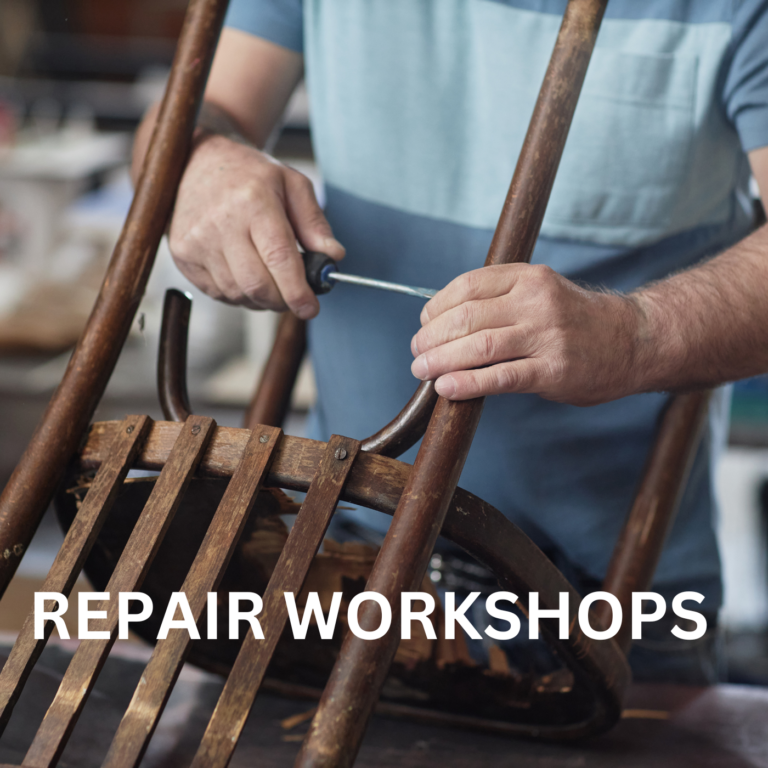Repair Workshops and DIY Upcycling: A Sustainable Revolution
In a world where convenience often outweighs sustainability, repair workshops and DIY upcycling are emerging as more than just a business trend—they’re a movement. These concepts are reshaping how we think about waste, consumerism, and creativity, offering practical solutions that save money, teach valuable skills, and contribute to a greener planet.
The Growing Appeal of Repair Workshops
Repair workshops are spaces where individuals can learn to fix their broken items—be it a chair, a toaster, or a pair of jeans—instead of throwing them away. These workshops empower people with hands-on knowledge while promoting a culture of sustainability.
Why Repair Workshops Matter
- Environmental Impact: Repairing items reduces landfill waste and lowers the demand for new products, cutting down on resource consumption and carbon emissions.
- Economic Benefits: Learning to repair items saves money in the long term by extending the life of everyday objects.
- Skill Development: Participants gain practical skills that can be applied repeatedly, fostering a sense of accomplishment and self-reliance.
- Community Building: Workshops often bring people together, creating a shared sense of purpose and collaboration.
Examples of Successful Repair Initiatives
- Repair Cafés: Originating in the Netherlands, these community-driven events offer free repairs for household items while teaching attendees how to fix their belongings.
- Corporate Repair Programs: Brands like Patagonia have embraced the repair culture, hosting events to fix their products and promote sustainable consumption.
The Creativity of DIY Upcycling
DIY upcycling involves transforming old or unused items into something new and functional. This creative approach to sustainability encourages individuals to think differently about waste and see potential in what might otherwise be discarded.
Benefits of DIY Upcycling
- Reducing Waste: Upcycling prevents items from ending up in landfills by giving them a second life.
- Encouraging Creativity: From turning old mason jars into lamps to repurposing wooden pallets as furniture, upcycling inspires artistic expression and innovation.
- Personalized Living Spaces: Upcycled items add a unique, personal touch to homes and workplaces, making them stand out.
Popular Upcycling Projects
- Furniture Makeovers: Sanding, painting, and refinishing old furniture to give it a modern aesthetic.
- Clothing Revamps: Transforming outdated garments into stylish pieces through tailoring and embellishments.
- Home Décor: Creating planters, mirrors, or wall art from scrap materials.
The Business Opportunity
Both repair workshops and DIY upcycling present significant business potential, particularly as consumer demand for sustainable and affordable solutions grows.
Revenue Streams
- Workshops and Classes: Offer hands-on repair or upcycling sessions for a fee.
- Tool Rentals and Kits: Provide customers with the tools and materials they need for projects at home.
- Finished Upcycled Products: Sell unique, upcycled items at local markets or online platforms like Etsy.
- Collaborations with Brands: Partner with eco-friendly companies to host repair or upcycling events.
Target Audience
- Eco-Conscious Consumers: People looking for sustainable alternatives to mass-produced goods.
- Budget-Conscious Shoppers: Individuals who want to save money by repairing or upcycling instead of buying new.
- Creative Hobbyists: Those seeking engaging and hands-on activities.
A Movement Towards Sustainability
Repair workshops and DIY upcycling are more than business ideas—they’re about transforming mindsets. In a throwaway culture, these initiatives remind us that repairing and repurposing are not just sustainable practices but also opportunities for personal growth and creative expression.
By adopting these concepts, individuals and communities can make a tangible difference in the fight against waste and climate change. Whether you’re starting a repair café, teaching upcycling techniques, or simply adopting these practices at home, you’re contributing to a greener, more sustainable future.
Conclusion
Repair workshops and DIY upcycling aren’t just about fixing or repurposing items; they’re about creating a culture of sustainability, empowerment, and creativity. These concepts show that small changes—like repairing a broken item or upcycling old materials—can have a significant impact on our wallets, our skills, and the environment.
If you’re passionate about sustainability and creativity, consider exploring repair workshops or starting your own DIY upcycling business. Together, we can redefine consumer culture and embrace a more sustainable way of living.



